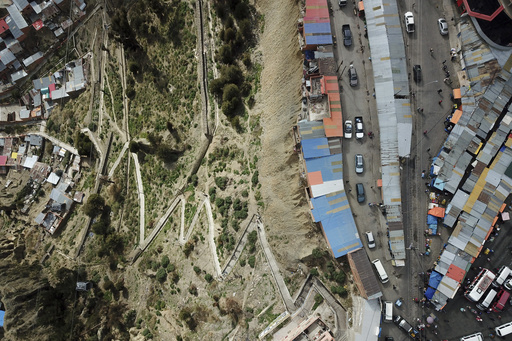
EL ALTO, Bolivia — The breathtaking vistas from small huts perched on the mountainsides surrounding Bolivia’s capital are mesmerizing. Within these fragile structures, Aymara shamans are engaged in prayers to the Andean gods, seeking protection from potential disasters due to the land’s instability.
In recent years, the mountain range encircling La Paz has experienced increased erosion exacerbated by climate change. Just a month prior, a mudslide tragically swept through a neighborhood, resulting in the loss of a young girl’s life. This incident has ignited a contentious dispute between the spiritual leaders and the Bolivian government, which has mandated the evacuation of the area.
“The slope is wearing away,” remarked Gabriel Pari, the secretary of water and sanitation for the municipality of El Alto, where these huts are situated. However, he noted that the shamans are adamant about their practices, claiming that they conduct rituals to avert such calamities and are determined to remain. “They assert they have lived here for over 60 years without incident,” Pari added.
Geological research indicates that the land consists of sandy and clay-like soil rather than a robust rock formation.
Historically, this site has held sacred significance for the Aymara Indigenous population dating back to pre-Hispanic eras. During the colonial period, shamans would conduct rituals on this mountaintop before ascending into the city with their llama caravans laden with agricultural goods.
According to Pari, the huts serve primarily as workspaces for the shamans, who do not reside in them but frequent the small structures frequently, even spending nights there.
At Tiburcio Condori’s hut, a sign elaborates on the various services he provides: from fortune-telling using coca leaves and playing cards, to remedies for ailments and emotional pain, as well as energy cleansing rituals intended to promote both physical health and spiritual wellness. A bonfire flickers outside, infusing the air with the aroma of burning incense.
“This ground is stable; it won’t give way. That’s what the coca leaf and Pachamama dictate to us,” asserted Condori, who has been a shaman and spiritual adviser for over two decades, using the Indigenous term for Mother Earth.
Condori has no intentions of leaving the area, and neither does Ana Chinahuanca. Among a community of around 100 shamans operating on the cliffs, her services include fortune-telling for about $2 and energy therapy sessions at rates of up to $15.
“They are spreading misleading information regarding the hazards,” said Chinahuanca, defending the safety of this storied location. “This area is secure.”
